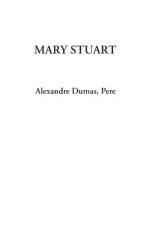This beginning of opposition, weak as it was, none the less disquieted Bothwell, who, sure of Mary’s love, resolved to make short work of things. Accordingly, as the queen was returning from Stirling to Edinburgh some days after the scenes we have just related, Bothwell suddenly appeared at the Bridge of Grammont with a thousand horsemen, and, having disarmed the Earl of Huntly, Livingston, and Melville, who had returned to his mistress, he seized the queen’s horse by the bridle, and with apparent violence he forced Mary to turn back and follow him to Dunbar; which the queen did without any resistance—a strange thing for one of Mary’s character.
The day following, the Earls of Huntly, Livingston, Melville, and the people in their train were set at liberty; then, ten days afterwards, Bothwell and the queen, perfectly reconciled, returned to Edinburgh together.
Two days after this return, Bothwell gave a great dinner to the nobles his partisans in a tavern. When the meal was ended, on the very same table, amid half-drained glasses and empty bottles, Lindsay, Ruthven, Morton, Maitland, and a dozen or fifteen other noblemen signed a bond which not only set forth that upon their souls and consciences Bothwell was innocent, but which further denoted him as the most suitable husband for the queen. This bond concluded with this sufficiently strange declaration:
“After all, the queen cannot do otherwise, since the earl has carried her off and has lain with her.”
Yet two circumstances were still opposed to this marriage: the first, that Bothwell had already been married three times, and that his three wives were living; the second, that having carried off the queen, this violence might cause to be regarded as null the alliance which she should contract with him: the first of these objections was attended to, to begin with, as the one most difficult to solve.
Bothwell’s two first wives were of obscure birth, consequently he scorned to disquiet himself about them; but it was not so with the third, a daughter of that Earl of Huntly who been trampled beneath the horses’ feet, and a sister of Gordon, who had been decapitated. Fortunately for Bothwell, his past behaviour made his wife long for a divorce with an eagerness as great as his own. There was not much difficulty, then, in persuading her to bring a charge of adultery against her husband. Bothwell confessed that he had had criminal intercourse with a relative of his wife, and the Archbishop of St. Andrews, the same who had taken up his abode in that solitary house at Kirk of Field to be present at Darnley’s death, pronounced the marriage null. The case was begun, pushed on, and decided in ten days.




